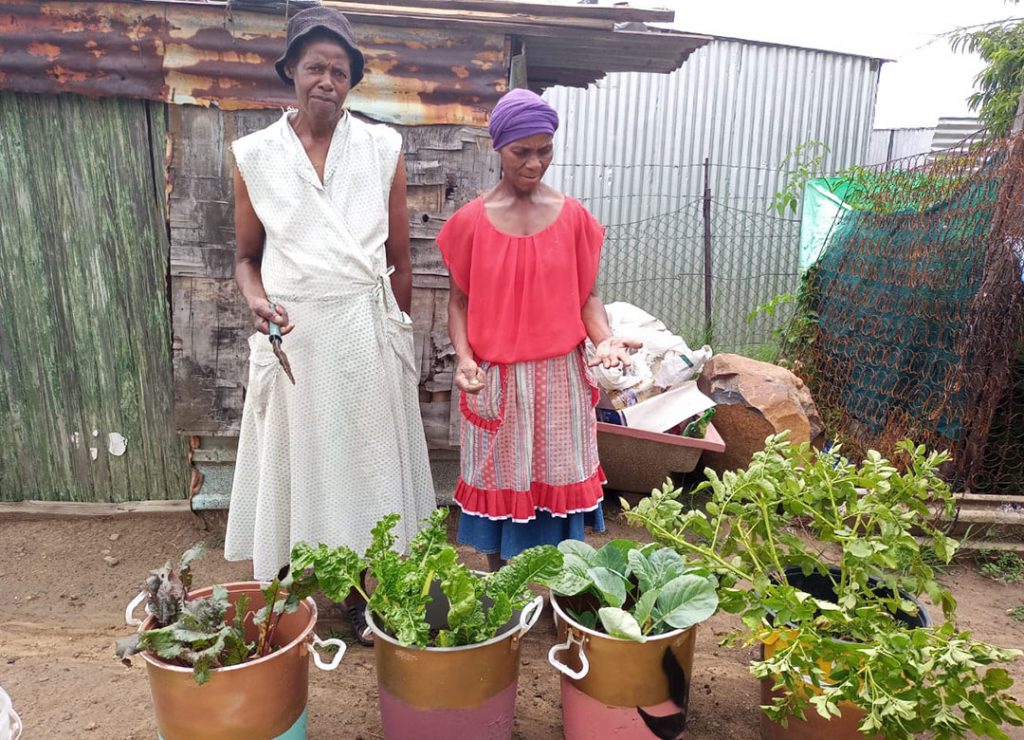Good nutrition is crucial to achieving educational and work success, but disadvantaged communities often lack nutritional food and rely on food donations, resulting in a lack of dignity and empowerment. The idea of bucket farming grew out hunger statistics of disadvantaged groups in a small town called Standerton, where many people queue for food once a week at shops that run food programmes and/or receive food parcels once a year. This is not sustainable and does not empower people to be in control of their food sources.
Bucket farming is about alleviating poverty and hunger and increasing food security by empowering families/households/individuals to grow their own food with minimal resources. In addition, when people have food, money received through grants can be redirected to other needs that contribute to self-development or local economic growth.
The project demonstrates that growing food does not require vast amounts of land and that bucket farming is a viable farming method for improving food security and decreasing hunger.
- Identification of 15 families, through organisations that are involved in the community.
- Meetings with the selected families who were mostly elderly and had some farming experience, in order to find out which crops they wanted to plant.
- Procurement and delivery of resources (potting soil, seeds, buckets, watering can, fertiliser, drill, nets, PVC pipes and wire) to the beneficiaries.
- Planting of crops.
- Training in taking care of the crops, harvesting seeds from grown crops, and replanting/treating the soil after harvesting.
- Harvesting of the crops.
- Continued planting and harvesting beyond the timeframe of the project.
Alignment with the IUDF
Inclusive and access: community members included the elderly.
Growth: sustainable livelihoods for everyone.
Stakeholders
Civil Society: community members, especially the elderly, and the NGO.





